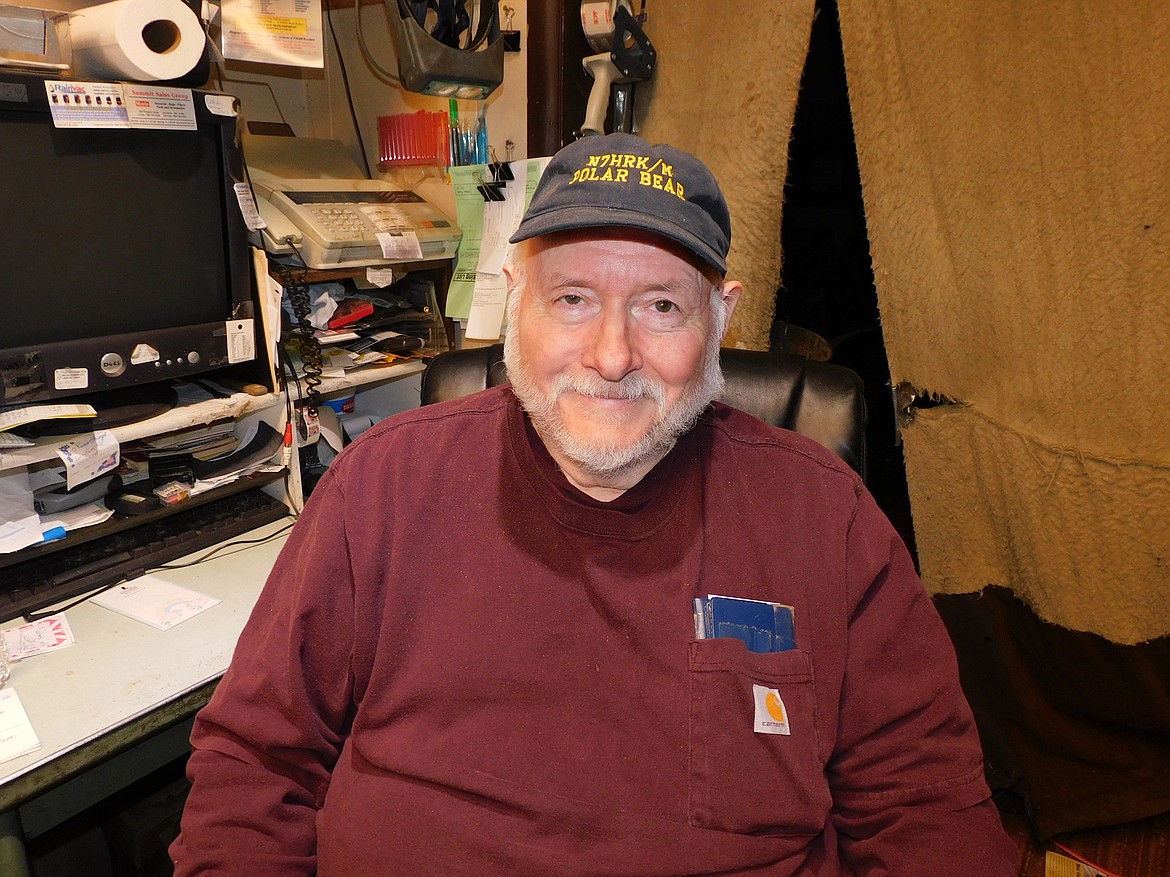Local expert explains unique form of communication: Morse Code
Di di di dit dit di-dah-di dit di dah di dit dah dah dah…. “Hello.”
Pretty much everyone knows the familiar sound of Morse code when they hear it, but not everyone knows what is being said.
Locals in Libby affectionately know Rick Klin as “Polar Bear Rick.” It's a name he garnered by taking his famous mid-winter dips in the freezing waters of Libby Creek or the Kootenai River.
He is our local Morse code (CW—continuous wave) expert. You may have seen a late model car around town with an unusually high antenna protruding from its trunk.
What you don’t know is that Rick is likely “talking” (not considered texting while driving) to someone in Sidney, Australia, Japan, Cape Town, South Africa or somewhere else in the world.
“It’s like Scotty from Star Trek beaming someone into my car, having a friendly conversation, then beaming them back out again when we are done,” he says.
There are no language barriers with CW so literally, the sky’s the limit.
Rick’s passion for CW shows as his eyes light up while explaining his fascination with this old time mode of communication.
“Proficiency and accuracy is the name of the game not speed as one would expect,” he states. “My concern is for the person on the other end to copy (understand) me with ease, and glean something from our conversation.
“Morse code is the language of sound, a foreign language to be sure, which anyone can understand if they take the time to learn it,” he said. “It is the same code used with flagging, signal lights or even by simply tapping your fingers against a POW wall to talk to another prisoner.”
Sending CW with the correct spacing that is easy to copy (arm-chair copy) for the person on the receiving end is his goal and pleasure.
Klin began learning Morse code at 15, so he's been at it a grand total of 65 years all together. In eighth grade, while visiting a friend at their home, he noticed his friend’s dad in another room on a gadget making strange sounds.
Intrigued, he asked his friend what was going on and he told him his dad was doing Morse code.
“What’s that?” Klin asked.
The man gave a brief explanation and told him he needed a license to do Morse code on the airwaves. He suggested he get a book from the library to study. Fascinated with this new
concept, Klin diligently studied on his own, memorizing every dot and dash for each letter and number.
“I knew it forward and backward. It filled me with confidence knowing I learned all there was to know, as I signed up to take the novice test. Well, I flunked the test. I was stunned when the instructor stuck a tape into the recorder and out came a series of dit’s and dah’s which they expected me to decode. I didn’t know what in the world they were saying. I discovered too late I made the mistake of learning visually by counting the dots and dashes. That’s when I realized Morse code is the language of sound.”
Klin was not deterred, though.
“Six months later, I joined a code class at the Knox County Amateur Radio Club in Vincennes, Indiana, where I learned CW the proper way. I took the novice test along with 40 others and passed at 5 words per minute. It handicapped me for a long time when I learned the wrong way by counting dots and dashes, instead of hearing them as dit’s and dah’s. I had to unlearn everything and start over. I tried using voice with the mic but never liked it, preferring CW instead.”
Now at the Extra Level, he is practicing at speeds of up to 44 wpm. He can head copy (letting the brain interpret) with ease, like any other language or conversation; which it is, just in a different form. Instead of an ‘A’, it becomes ‘dit dah’.”
Quoting 1 Corinthians 13: The Faith, Hope and Charity (Love) chapter and applying it to Morse code, he states, “If you have the best or most expensive radio (faith) or the largest
antenna system (hope) but if you don’t have a good, clean Fist (charity or love), you have nothing because without a good fist, you are nothing. A good fist means you love CW enough to use proper CW etiquette by sending messages with the proper spacing while considering the speed of the receiver. You should care enough for the person on the other end to let them copy you at their level. I don’t practice CW for my benefit but to benefit others.”
He especially enjoys it when someone tells him how good he is sending. That is when he knows he has helped the person on the other end. Mission accomplished!
Klin is giving a beginning CW class for members of the Lincoln County Amateur Radio Group (LCARG) starting the week of May 22.
His classes are usually one night a week for six weeks for 1-1/2 hours each night. He also stated he may do a class for the public in the future.
For those interested in attending a group meeting, they meet at 925 E. Spruce St. in Libby in the Emergency Operations Center next door to the Ponderosa Room, on the second
Saturday of the month at 10 a.m.
The door is at the back of the building. You may also get more information at www.lcarg.mt.com or email us at lcarg.mt@gmail.com for further information.
You can reach Rick on the airwaves at 7.046MHZ +/-500HZ at 8 a.m., and at 7:30 p.m. at 7.115MHZ +/-500HZ at any speed.
Or visit with Klin at his store, Tech Appliance & RV Repair, at 303 California Ave. in Libby (406-293-5014).
He is always happy to answer your questions and even happier to give you a short demo on his CW decoder machine.

